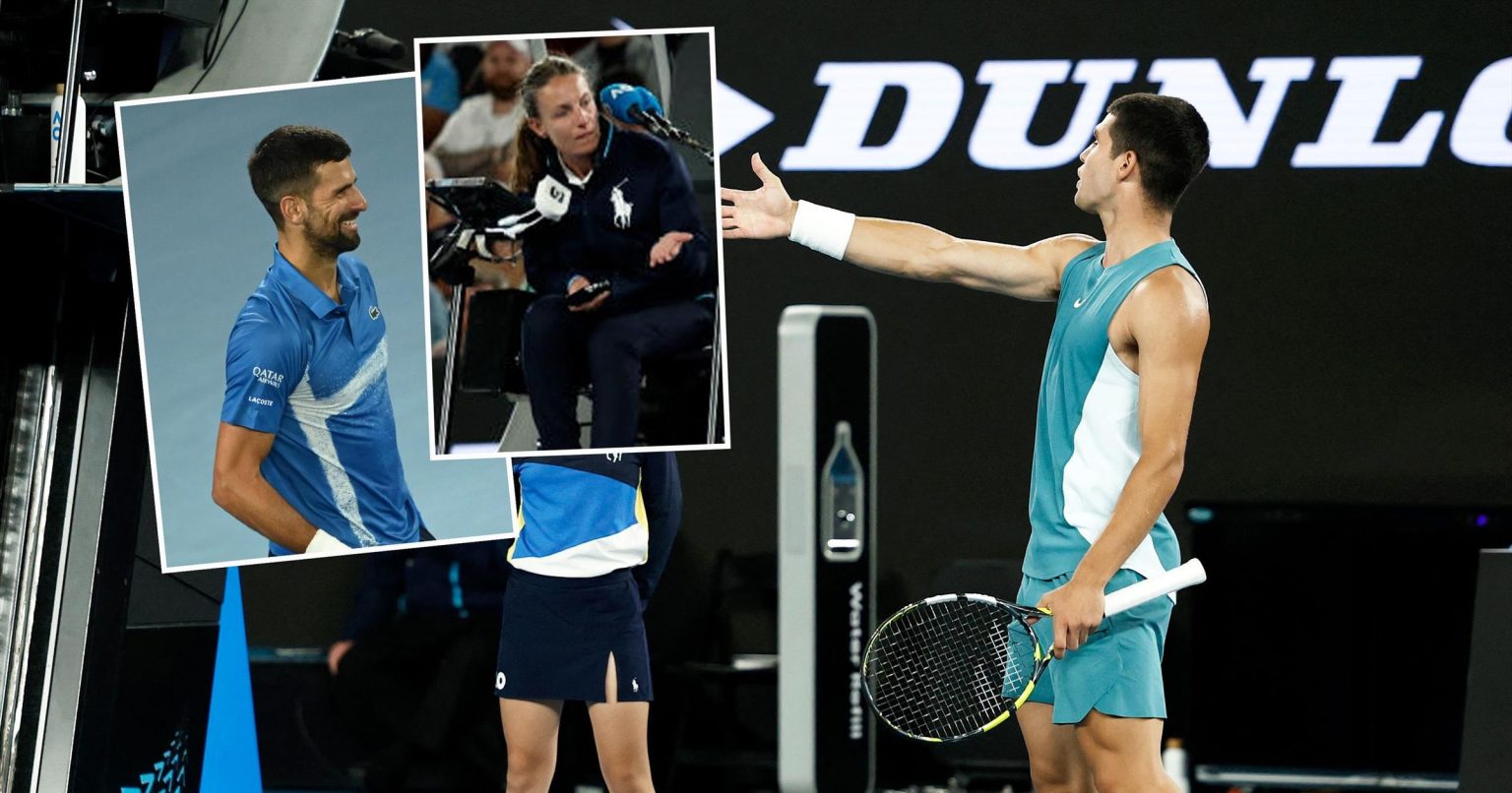The Australian Open quarter-final clash between Carlos Alcaraz and Novak Djokovic, two titans of the tennis world, ignited with a flicker of controversy. Djokovic, a ten-time champion at Melbourne Park and seasoned veteran, held a 3-1 advantage in the second set, but his dominance was tempered by a lingering left leg injury sustained earlier in the match. The pivotal moment arrived during a crucial point at 15-30. Djokovic’s serve grazed the net cord before landing in the service box, prompting a return shot from Alcaraz. As the rally seemed poised to continue, the chair umpire intervened, calling a let. This seemingly routine call sparked a heated exchange with Alcaraz, who expressed his bewilderment at the delayed intervention.
Alcaraz, a four-time Grand Slam champion himself, didn’t dispute the let call itself, but rather the umpire’s timing. He argued that the five-second delay, after both players had reacted to the net cord touch, disrupted the flow of the game. This delay, he contended, was “crazy,” as it interrupted the natural rhythm of play. The Eurosport commentary team, comprised of Naomi Cavaday and Tim Henman, echoed the general confusion surrounding the incident. They observed that while everyone agreed the call was correct, Alcaraz felt the umpire’s decision was influenced by Djokovic’s reaction during the point. Djokovic himself appeared uncomfortable with Alcaraz’s questioning of the umpire’s judgment.
The controversial call seemed to galvanize Alcaraz, fueling his resolve. The pent-up frustration translated into aggressive play, allowing him to break back and level the second set. This momentum shift added another layer of tension to an already electrifying match between two of the sport’s most exciting players. Despite the setback, Djokovic ultimately claimed the second set, equalizing the score and setting the stage for a compelling showdown on Rod Laver Arena. The incident highlighted the immense pressure and intensity that accompanies high-stakes Grand Slam matches, where even seemingly minor decisions can become flashpoints of contention.
The incident underscores the complex interplay between players, officials, and the unpredictable nature of live sports. While the let call itself was not disputed, the timing of the call became the focal point of the controversy. Alcaraz’s argument centered on the disruption caused by the delayed intervention, which he felt could have influenced the outcome of the point and potentially the game. His frustration stemmed from the perceived break in momentum, a crucial element in high-level tennis where split-second decisions can dictate the flow of play. The incident also highlighted the scrutiny officials face, particularly in crucial moments of high-stakes matches.
Djokovic’s reaction, though subtle, also added to the intrigue. His apparent discomfort with Alcaraz’s questioning of the umpire suggests an awareness of the potential impact of such interventions on the dynamics of the match. Even though the call was ultimately in his favor, the ensuing controversy created a momentary shift in momentum, which Alcaraz capitalized on to level the second set. This sequence of events highlighted the delicate balance of power and psychology that often determines the outcome of closely contested matches.
The incident serves as a microcosm of the intricate and nuanced world of professional tennis. It underscores the importance of not just the rules of the game, but also the interpretation and application of those rules in real-time, under immense pressure. The delayed let call, though seemingly minor, became a pivotal moment in the match, highlighting the complex interplay of rules, player reactions, and umpire decisions that contribute to the drama and unpredictability of Grand Slam tennis. The exchange between Alcaraz and the umpire, amplified by the commentary and the reactions of both players, became a defining moment in the quarter-final clash, adding another layer of complexity to an already thrilling encounter.

